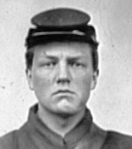12. Race, Racism and the Black Experience
Questions:
1. What was the experience of black troops?
2. How far, by 1865, had the civil war changed the lives of African Americans?
3. How, if at all, did the war alter white northerners’ racial
attitudes?
4. What were the arguments for and against the passage of the Thirteenth
Amendment?
David
W. Blight, “Douglass and the Meaning of the Black Soldier,” from
Frederick Douglass’ Civil War: Keeping Faith in Jubliee (Baton
Rouge: Louisiana State University Press, 1989)
Joseph T. Glatthaar, “Black Glory: The African-American Role in
Union Victory,” from Gabor S. Boritt, ed., Why the Confederacy
Lost (New York: Oxford University Press, 1992)
Eric Foner, Reconstruction: America’s Unfinished Revolution (New
York: Harper & Row, 1988)
John Cimprich, Slavery’s End in Tennessee (University, Ala.: Alabama
University Press, 1985)
Clarence Mohr, On the threshold of Freedom: Masters and Slaves in Civil
War Georgia (Athens: University of Georgia Press, 1986)
Primary sources
Corporal James Henry Gooding to Abraham Lincoln, 28 Sept. 1863
Hannah Johnson to Hon. Mr. Lincoln, 31 July 1863
Maj. Genl. W. T. Sherman to Thomas Hunton, Esq., 24 Aug. 1862
Edwin S. Redkey, ed.. A Grand Army of Black Men: Letters from African-American
Soldiers in the Union Army, 1861-1865 (Cambridge: Cambridge University
Press, 1992)
R. J. M. Blackett, ed., Thomas Morris Chester, Black Civil War Correspondent:
His Dispatches from the Virginia Front, (Baton Rouge: Louisiana State
University Press, 1989)
Virginia M. Adams, ed., On the Altar of Freedom: A Black Soldier’s
Civil War Letters from the Front (Amherst, Mass.: University of Massachusetts
Press, 1991)
